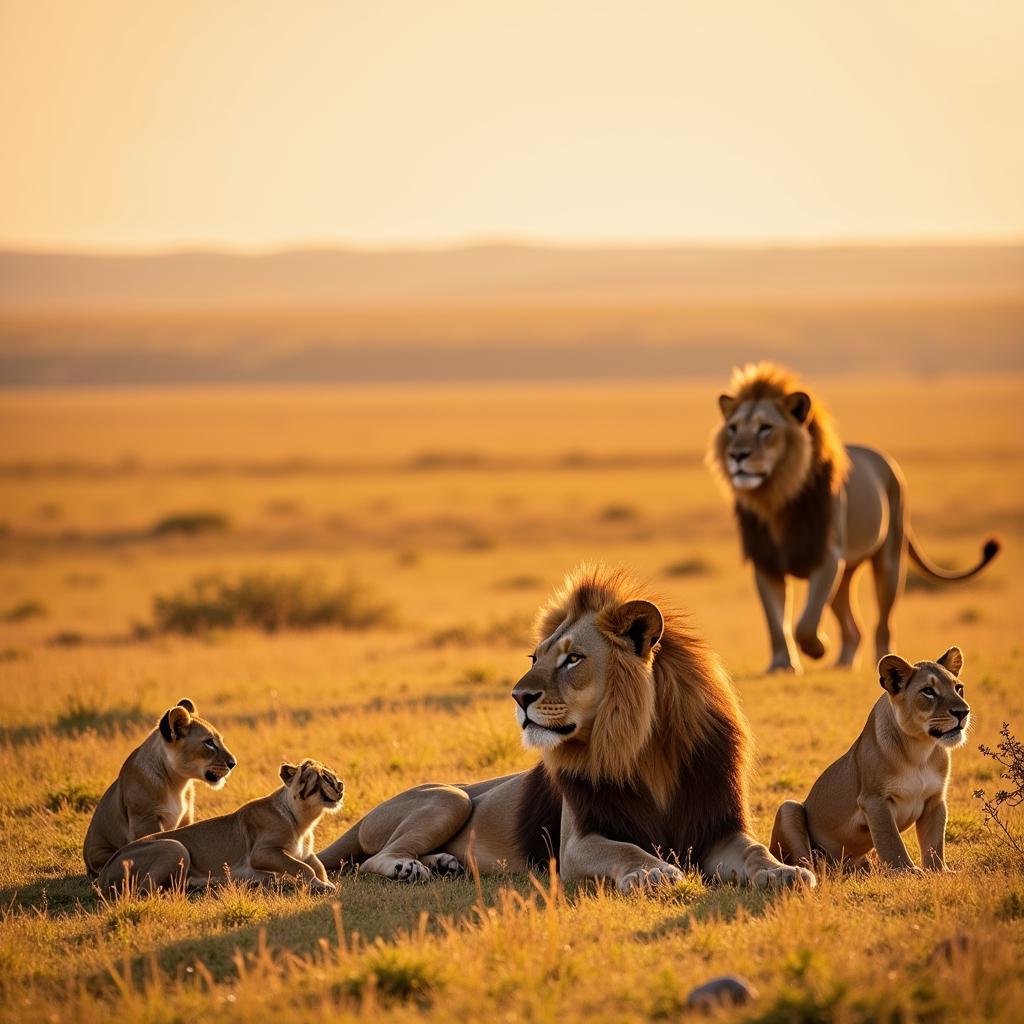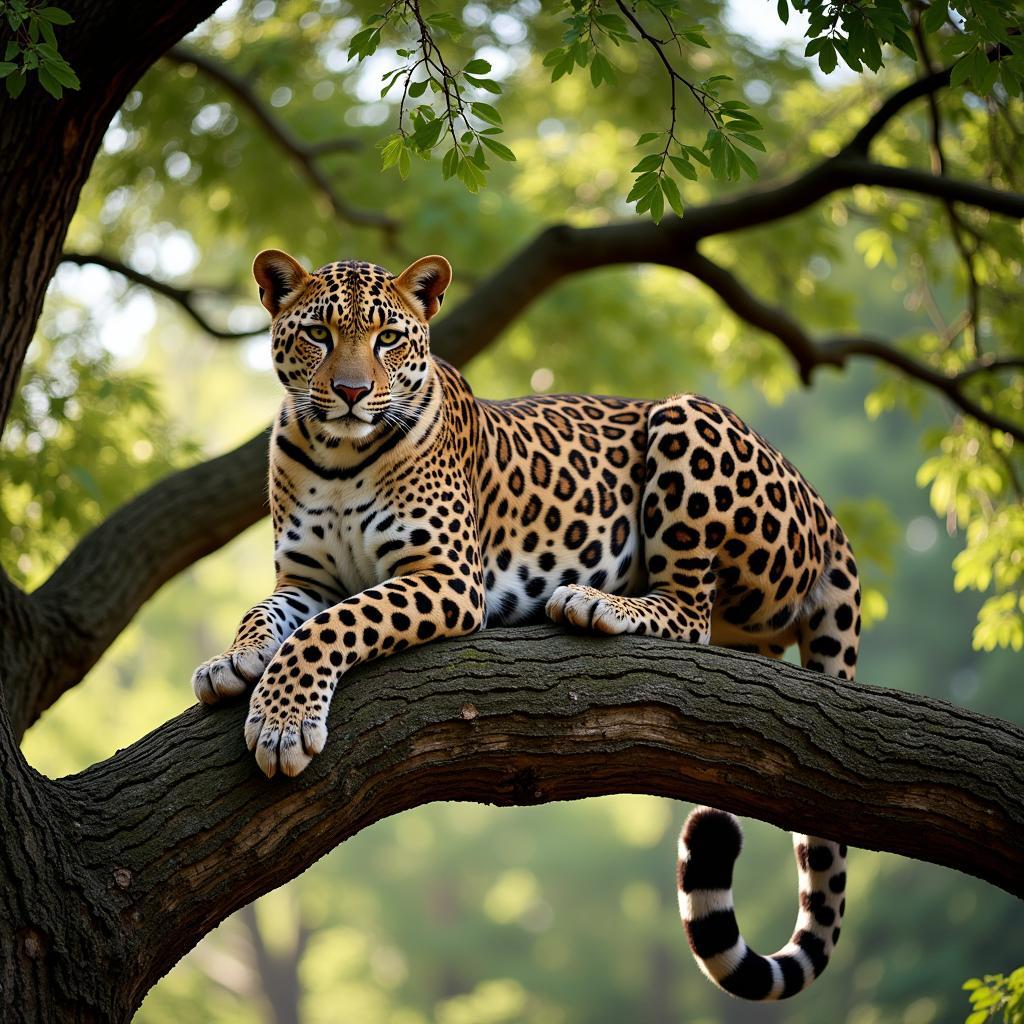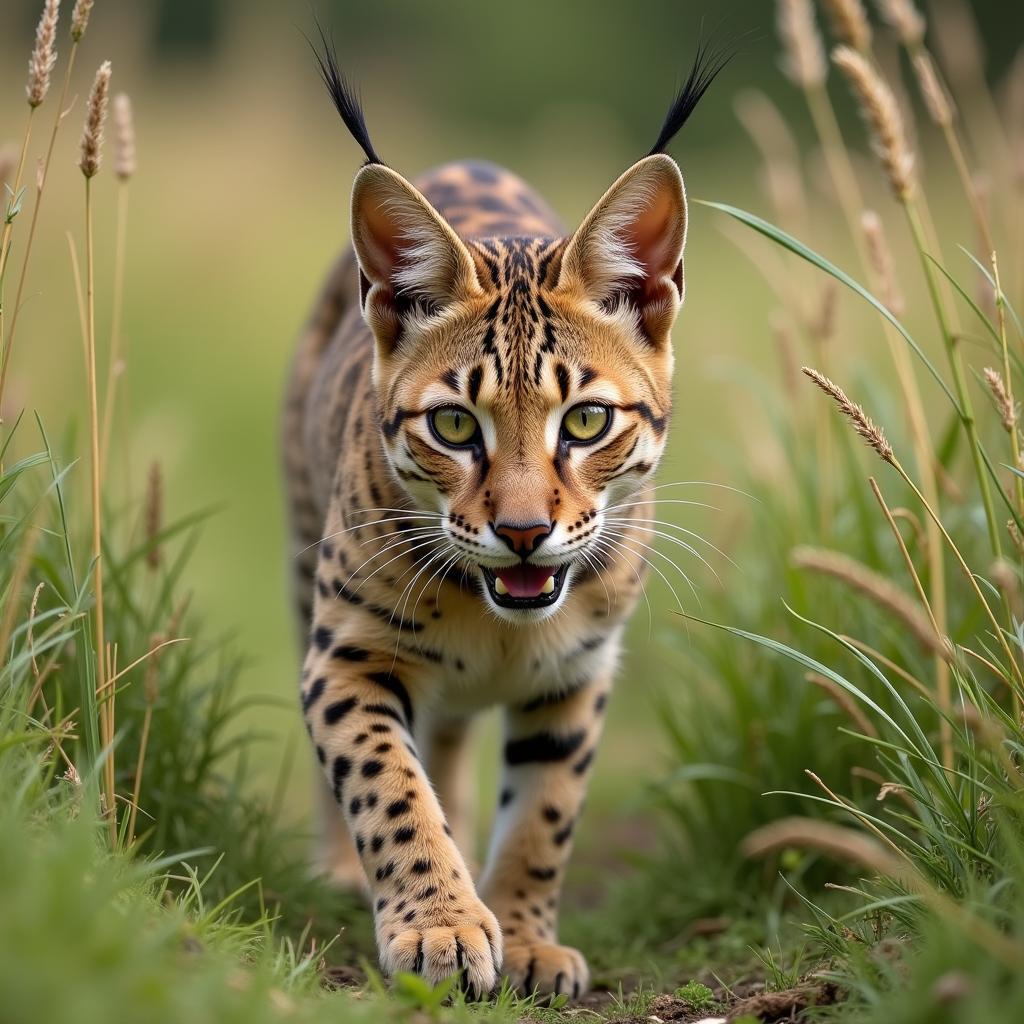African Cat Description: A Comprehensive Guide to the Majestic Felines of Africa
African Cat Description: This guide delves into the captivating world of Africa’s magnificent feline predators, exploring their diverse characteristics, behaviors, and habitats. From the iconic lion to the elusive serval, discover the unique features that make these creatures so fascinating. Let’s embark on a journey to understand these majestic animals.
Unveiling the Diversity: An Overview of African Cat Species
Africa is home to a remarkable array of cat species, each uniquely adapted to its environment. Their diversity is truly stunning, encompassing everything from the powerful lion, the world’s second-largest cat, to the diminutive black-footed cat, one of the smallest. These felines play vital roles in their ecosystems, maintaining the delicate balance of nature. Their descriptions vary greatly, showcasing the incredible adaptability of these creatures.
 Lion Pride on the Serengeti Plains
Lion Pride on the Serengeti Plains
The King of the Jungle: African Lion Description
The lion, often referred to as the “king of the jungle,” is arguably the most recognizable African cat. Males are distinguished by their impressive manes, a symbol of strength and dominance. Lions are highly social animals, living in prides that can consist of up to 30 individuals. Their roars can be heard for miles, echoing through the African savanna. What distinguishes a male lion from a female? The prominent mane is the most obvious difference.
The Elusive Leopard: A Master of Stealth
Leopards, known for their striking rosette markings, are masters of camouflage and stealth. They are incredibly agile climbers and often drag their kills into trees to protect them from scavengers. Leopards are solitary creatures, preferring to hunt and live alone. Their adaptability allows them to thrive in a variety of habitats, from dense forests to open grasslands. How do leopards hunt? They rely on stealth and ambush tactics, patiently stalking their prey before launching a swift attack.
 Leopard Resting on a Tree Branch
Leopard Resting on a Tree Branch
The Speedy Cheetah: Built for Speed
The cheetah, the fastest land animal, is a marvel of evolutionary engineering. Its slender body, long legs, and flexible spine are perfectly adapted for high-speed pursuits. Cheetahs can reach speeds of up to 70 miles per hour in short bursts, making them formidable hunters. Unlike other African cats, cheetahs have semi-retractable claws, providing them with enhanced traction during their incredible sprints. What makes the cheetah so fast? Its unique physical adaptations, including a lightweight frame and specialized muscles, contribute to its incredible speed. You can also find some great resources for african brocade fabric for sale.
Beyond the Big Cats: Exploring Other African Felines
While the lion, leopard, and cheetah often steal the spotlight, Africa is home to a plethora of other fascinating felines. The caracal, with its distinctive ear tufts, is a skilled hunter of small mammals and birds. The serval, with its long legs and spotted coat, is adapted to hunting in tall grasslands. The African wildcat, a close relative of the domestic cat, is a small but fierce predator. These smaller cats play crucial roles in their ecosystems.
The African Wildcat: A Miniature Hunter
The African wildcat, though small, is a formidable predator in its own right. It plays an essential role in controlling rodent populations. This small cat exhibits a variety of coat colors and patterns, depending on its geographic location. How does the African wildcat contribute to its ecosystem? It helps maintain the balance of nature by preying on small animals like rodents. It’s fascinating to learn about the diverse african channels on firestick available online.
 African Wildcat Hunting Prey
African Wildcat Hunting Prey
Conservation Efforts: Protecting Africa’s Majestic Felines
Many African cat species face threats from habitat loss, poaching, and human-wildlife conflict. Conservation efforts are crucial to ensure the survival of these magnificent creatures for future generations. These efforts include protecting habitats, combating illegal wildlife trade, and promoting sustainable coexistence between humans and wildlife. Why are conservation efforts important? They are essential to protect these magnificent animals and the ecosystems they inhabit. If you are interested in unique fashion, check out this online store for african clothing online india. You can find great deals on african grey parrot baby olx lahore if you’re looking for a feathered friend. Additionally, you can easily purchase a wide variety of African food items through reputable online african grocery store online.
Conclusion: A Legacy of Wild Beauty
African cat description: This journey through the world of African felines reveals the incredible diversity and beauty of these majestic creatures. From the mighty roar of the lion to the lightning speed of the cheetah, each species plays a vital role in the intricate tapestry of African wildlife. By understanding and appreciating these animals, we can work together to ensure their continued survival and protect their wild legacy.
FAQ:
- What is the largest cat in Africa? The lion is the largest cat in Africa.
- Which African cat is the fastest? The cheetah is the fastest land animal in the world, and therefore the fastest cat in Africa.
- Do all African cats live in prides? No, many African cats, like leopards and cheetahs, are solitary animals.
- What are the main threats to African cats? Habitat loss, poaching, and human-wildlife conflict are the primary threats.
- How can I help protect African cats? Supporting conservation organizations and spreading awareness about the importance of wildlife conservation are key ways to help.
- What is the smallest cat in Africa? The black-footed cat is the smallest wild cat in Africa.
- What are the distinctive markings of a leopard? Leopards are known for their unique rosette patterns on their fur.
When you need support, please contact us via Phone: +255768904061, Email: [email protected] or visit us at Mbarali DC Mawindi, Kangaga, Tanzania. We have a 24/7 customer service team.
